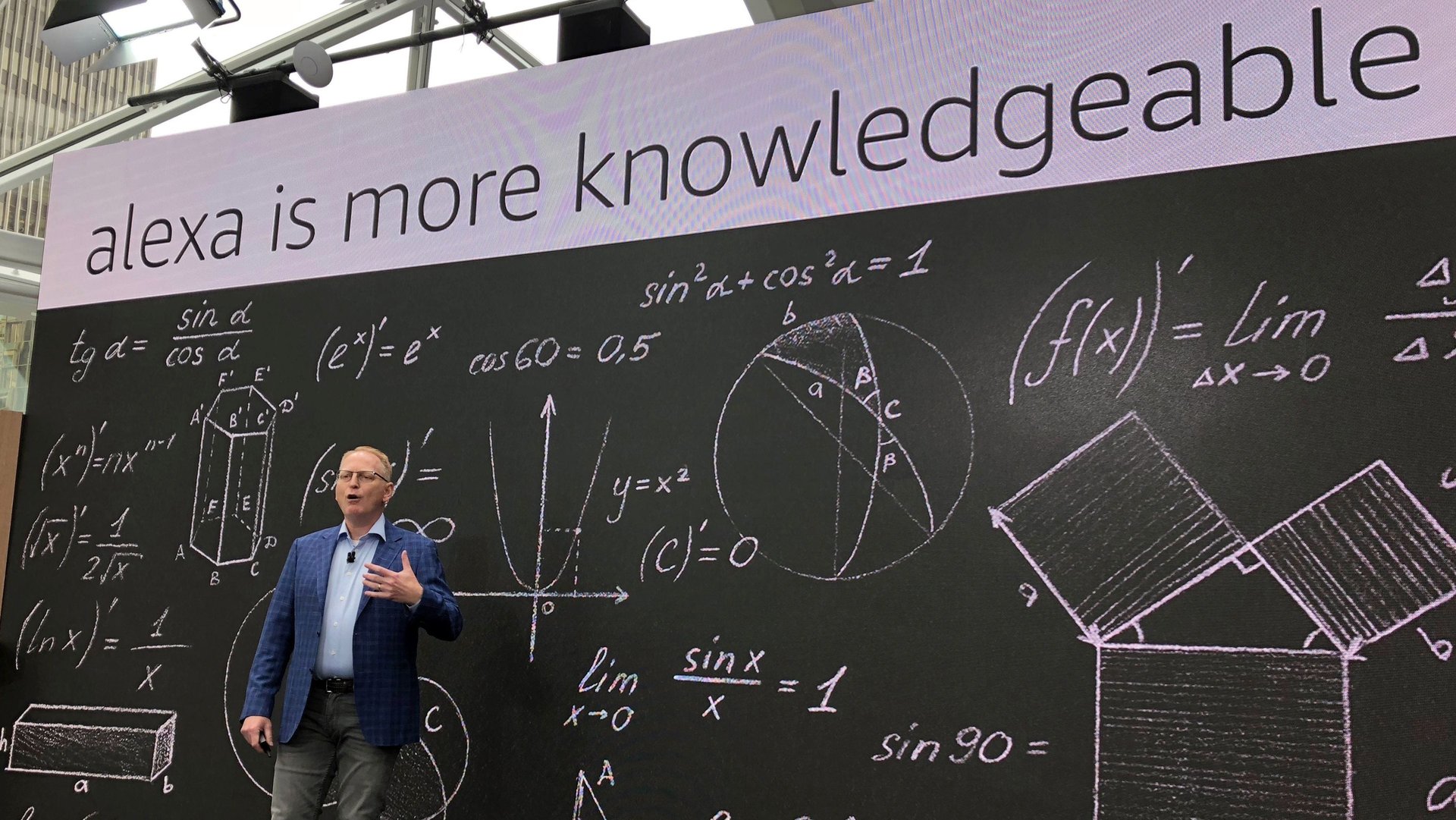Alexa is the future of Amazon’s consumer business
Amazon released more products this week than I’ve ever seen announced at once by a tech company. The pace was dizzying: At an event at its Seattle headquarters, it announced a new product about every five minutes for an hour and a half.


Amazon released more products this week than I’ve ever seen announced at once by a tech company. The pace was dizzying: At an event at its Seattle headquarters, it announced a new product about every five minutes for an hour and a half.
Almost all of those products were focused around Alexa, its virtual voice assistant. Before this week, you could reasonably describe Alexa as the brains of Amazon’s Echo smart speakers. Now, it’s the center of Amazon’s gambit to own the smart home of the future.
Here’s a quick rundown of the Alexa-enabled products Amazon announced: A wall clock, microwave, subwoofer, an Alexa for the car, a DVR for your TV antenna, a smart plug, and a microphone that turns your existing hi-fi setup into an Alexa-powered audio rig. Oh, and updates to the Echo Dot, Echo Plus, and Echo Show.
Beyond the physical devices, Amazon released new hardware and software for developers to hook their own products into the software ecosystem. Its new Alexa Gadgets Toolkit is a way for programmers to make their devices controllable by Alexa. Amazon imagined gadgets like physical timers that Alexa can set, robots that give physical form to Alexa, and reminders for automated pill boxes.
A Silicon Valley mantra is “leverage your data,” and Amazon is taking that to heart. The e-commerce company has data on billions of transactions, covering any space it might want to undercut. Until now that’s mostly been fodder for the AmazonBasics brand, which makes everything from backpacks to iPhone cables. But now, with Alexa-enabled AmazonBasics microwaves and smart plugs, everything electronic that Amazon sells is beginning to coalesce.
We’ve seen this tactic before. Creating a platform for other developers to sell products without having to build the core technology is what gave Microsoft’s Windows 88% worldwide market share for desktop and laptop computers, and Google’s Android 70% worldwide market share. Basically, when an operating system becomes popular, it eats the market.
But unlike Microsoft and Google, which developed the software and only circled back later with their own devices, Amazon literally created the smart voice speaker category with its hardware and software.
Amazon is going to sell you smart home gadgets, make other developers play with its ecosystem to get users, and then use your own smart home to sell you things on Amazon. See: the AmazonBasics microwave, which is already outfitted to automatically buy more popcorn when you’re running low.
Amazon CEO Jeff Bezos talks about the devices constantly. He’s mentioned Alexa devices in four of the company’s last five quarterly earnings calls, even though the money that came from Alexa devices is likely a small portion of the company’s $52.8 billion in revenue last quarter. Mentions of “Alexa” in Amazon’s last earnings call even eclipsed mentions of “Prime,” long the center of everything Amazon does.
And if all the hardware and software Amazon announced this week wasn’t enough, there’s one more sign of the company’s impending domination of the smart home: There will be a new Alexa-enabled Big Mouth Billy Bass.